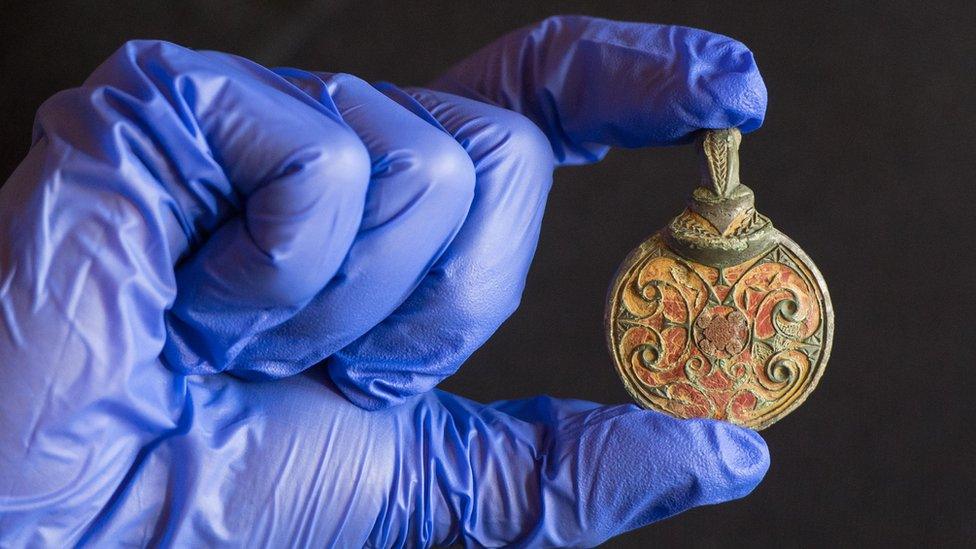Treasure found across Northern Ireland
- Published
Northern Ireland's hidden treasure
More than 40 objects found across Northern Ireland between 2009 and 2016 have been officially categorised as "treasure" by a coroner.
The items include a variety of precious rings, jewellery and Viking coins.
They were found by members of the public through metal-detecting, as well as by archaeologists on excavation.
After examination both by the coroner and the British Museum, some of the treasured items are now being held at the Ulster Museum in Belfast.
In Northern Ireland, any search for archaeological material that involves disturbing the ground requires a licence in advance from the Department for Communities' Historic Environment Division (HED).
Anyone finding an object they think may be archaeological must also report the find to the National Museum, HED or the PSNI within 14 days of either the date of the find or when they establish that the object may be archaeological.

What constitutes "treasure"?
According to the 1996 Treasure Act, items must be more than 300 years old.
They must have a certain amount of precious metal, normally gold or silver.
Ancient coins must be found in quantities of two or more to classify as "treasure".

Some of the items of treasure found between 2009 and 2016 that are currently on show in the Ulster Museum include:

A bulla
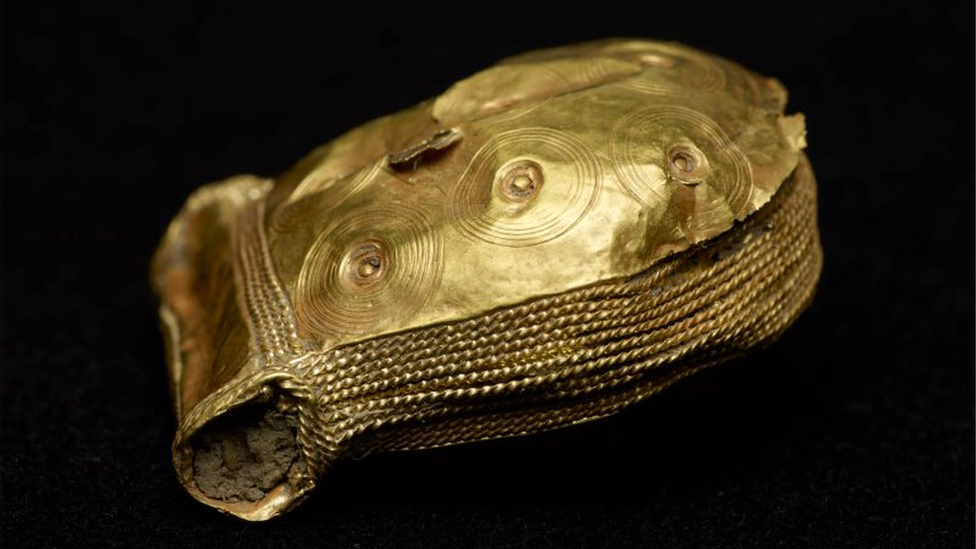
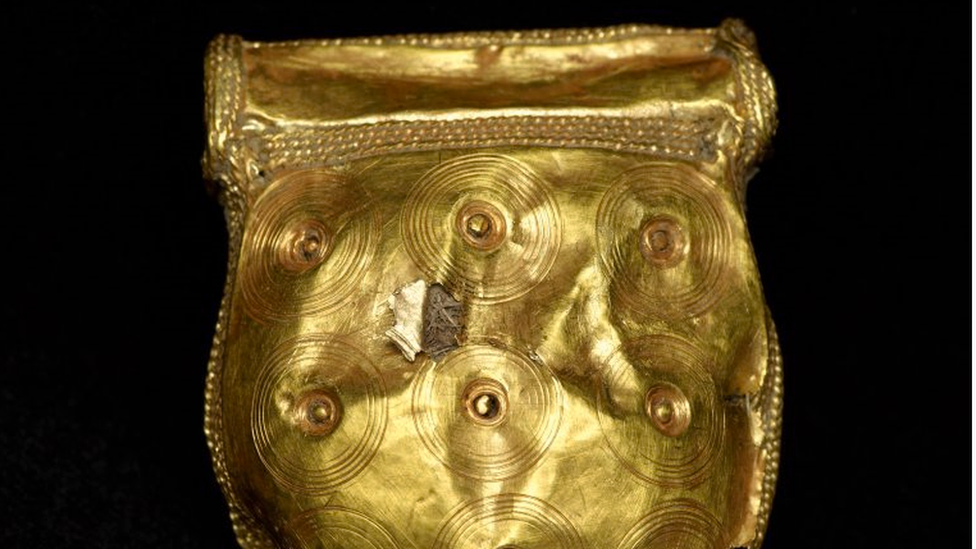
This bulla on display at the Ulster Museum was found in County Down and dates back to 800 BC.
A bulla would have been worn as a sacred necklace or locket normally with a form of chain.
Dr Greer Ramsey, curator of archaeology at National Museums NI, said the item was incredibly rare.
"There are about seven in the whole of Ireland so this is exclusively an Irish object," he said.

A torc
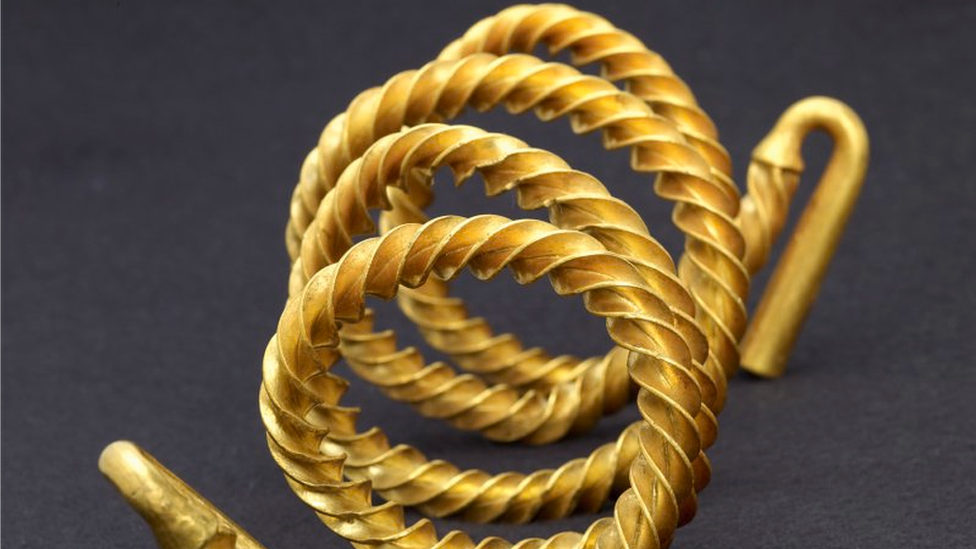
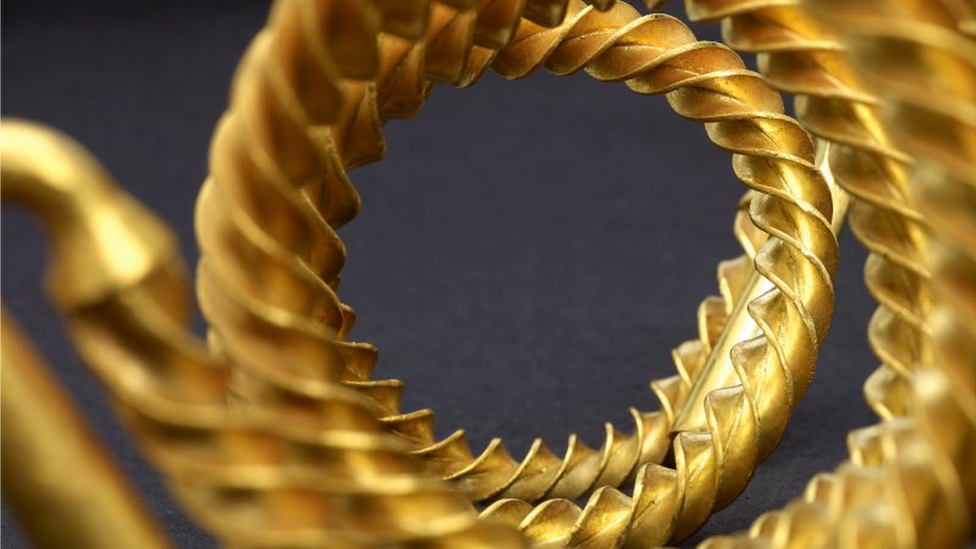
This torc, found in Fermanagh, dates back to 1,300 BC.
A torc is an item of Bronze Age jewellery that would have been worn around the neck or waist to represent wealth.
Speaking about this incredible find, Dr Ramsey said: "This has around 720 grams of gold, so this is a really impressive item."

Roman rings
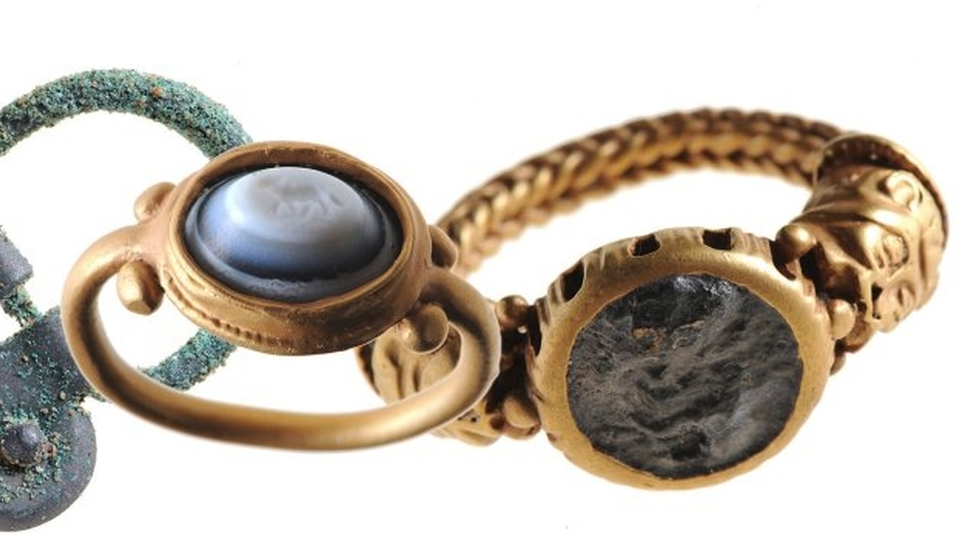
These precious rings were found in County Down and date back to the Roman period.
Unlike Britain, Ireland was never invaded by the Romans, and archaeological finds in Ireland dating back to the Roman era tend to be located along the coast.
Dr Ramsey believes these rings may have been buried for safe keeping or "sacrificed" to a Roman god for a safe journey.
They may also have been part of a burial ritual, or have been lost when their owner fell overboard at sea, causing them to wash up on Northern Ireland's shores.

Viking coins
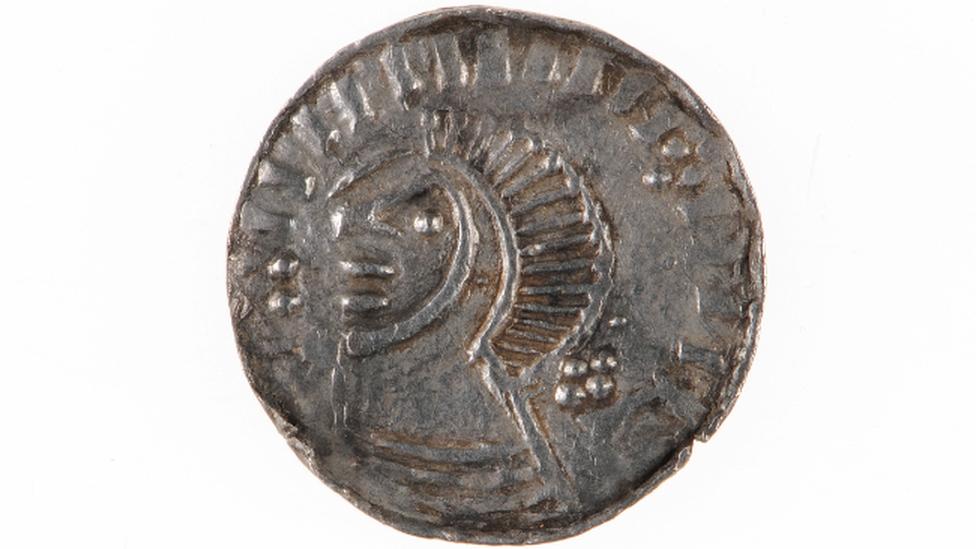
These Viking coins were found in County Down and date back to the 11th Century.
They have been identified as a rare type of coin that circulated on the Isle of Man.
The coins could represent a Viking raid on a nearby monastery, or could reflect peaceful trading between the Isle of Man and south-east Ulster.
- Published5 December 2016
